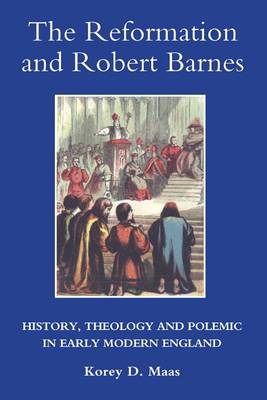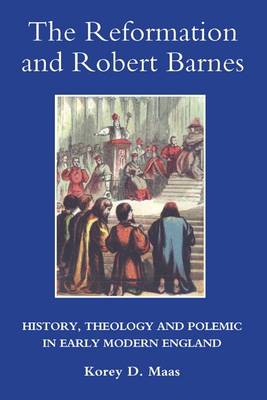
Bedankt voor het vertrouwen het afgelopen jaar! Om jou te bedanken bieden we GRATIS verzending (in België) aan op alles gedurende de hele maand januari.
- Afhalen na 1 uur in een winkel met voorraad
- In januari gratis thuislevering in België
- Ruim aanbod met 7 miljoen producten
Bedankt voor het vertrouwen het afgelopen jaar! Om jou te bedanken bieden we GRATIS verzending (in België) aan op alles gedurende de hele maand januari.
- Afhalen na 1 uur in een winkel met voorraad
- In januari gratis thuislevering in België
- Ruim aanbod met 7 miljoen producten
Zoeken
Omschrijving
By the time of his death at the stake in 1540, Robert Barnes was recognized as one of the most influential evangelical reformers in Henrician England. Friend and foe alike judged him the most popular and persuasive preacher of the 'new learning'. He enjoyed the patronage of King, Archbishop, and Vicegerent at home, and the praise of evangelical princes and theologians abroad. He wrote what would be the closest the Henrician reformers came to a systematic theology, as well as the first Protestant history of the papacy. Then his dramatic, and not entirely explicable, execution quickly ensured his lasting place in the century's popular propaganda. In this first extensive examination of Robert Barnes and his reformation significance Korey Maas provides a comprehensive survey of the reformer's stormy career, a clear and convincing analysis of his often misconstrued theology, and a persuasive argument that the influence of Barnes and his novel polemical programme extended not only into the century following his death, but was as prominent on the continent as it was in his native England.
Specificaties
Betrokkenen
- Auteur(s):
- Uitgeverij:
Inhoud
- Aantal bladzijden:
- 266
- Taal:
- Engels
- Reeks:
- Reeksnummer:
- nr. 23
Eigenschappen
- Productcode (EAN):
- 9781843835349
- Verschijningsdatum:
- 15/04/2010
- Uitvoering:
- Hardcover
- Formaat:
- Genaaid
- Afmetingen:
- 155 mm x 236 mm
- Gewicht:
- 566 g

Alleen bij Standaard Boekhandel
+ 354 punten op je klantenkaart van Standaard Boekhandel
Beoordelingen
We publiceren alleen reviews die voldoen aan de voorwaarden voor reviews. Bekijk onze voorwaarden voor reviews.









